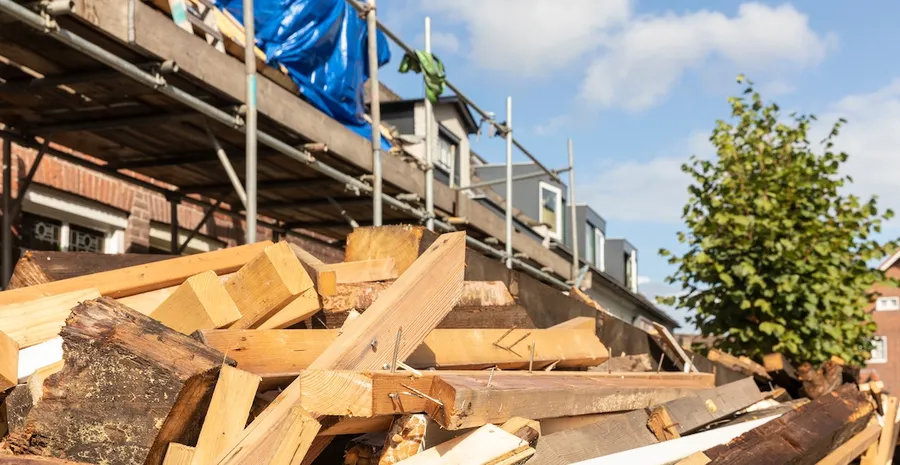
Material from the construction sector accounts for more than one-third of Victoria’s landfilled waste, and material from construction, demolition, and the renovation of buildings accounts for one-third of Metro Vancouver’s waste.
In 2023, it was reported that Metro Vancouver would spend $150 million sending waste to the United States and the interior of British Columbia.
I have been in the construction and development industry for over 40 years and experienced the impacts firsthand. Although this problem seems overwhelming, there are changes we can make now to create significant reductions over time.
It’s vital to focus on a solutions-oriented approach to create actionable strategies, which can be measured, therefore holding your organization accountable.
The first step for a company is identifying the main impacts the industry has on BC’s environment.
Some examples of what to keep track of include waste management with a focus on the amount of waste from project sites, carbon emissions from the carbon-intensive concrete production process, energy and water consumption, and the extensive transport and deliveries required in the building process.
Waste reduction may be prioritized, as the impact is considerable, and it’s an area that we control at a site level.
There are several solutions to consider implementing. The recycling and repurposing of metal and cardboard materials are common within the construction industry, but there are other areas that are less common and may be overlooked as an opportunity. This includes concrete crushing screened at off-site recycling facilities to be reused as a low-cost aggregate product and wood waste taken to off-site facilities to be reused as planks or pallets, sawdust, wood chips, chipboard or fiberboard products.
Furthermore, wood chip waste can be recycled by using it in landscaping, especially for residential projects.
Although plastics can be a small percentage of waste that organizations encounter on construction sites, it has an outsized impact, particularly on the marine environment that is so central to life in BC. It is therefore vital to ensure that plastic recycling stations are set up at all sites, helping to keep plastic waste out of landfills, both as part of construction operations as well as at corporate offices and presentation centres.
To discourage the use of plastic water bottles, installing water refill stations at all sites and sales centres and providing employees and trade teams with reusable water bottles help to deter the use of plastic bottles and encourage workers to make better choices regarding plastic use.
In addition to reducing construction waste, another important step is supporting an organization that is dedicated to the environment.
For the past few years, we have supported Rugged Coast Research Society — a local non-profit organization focused on debris removal on BC’s remote shorelines and research — on how re-accumulation is impacting BC’s coastlines and ecosystems.
Our team has joined Rugged Coast for two remote coastal cleans – one in Tofino and most recently at Brooks Peninsula, a remote outcropping on the West Coast of Vancouver Island.
This opportunity made the issue real for many of us and can provide your team with the chance to see firsthand how much plastic debris is collecting along BC’s coastlines and its impact on the creatures that dwell there. For every one of your team who participate, if five or 10 others who they are connected with are inspired to pay attention to their impact on our environment, then we have collectively done something quite extraordinary.
As a company leader, sharing your passion for this work amongst your team often brings your talented professionals together to create change. This can result in a stronger team dynamic and a sense of pride, working for a company that authentically cares and invests in something meaningful.
In 2023, Mediacorp Canada Inc. and The Globe and Mail found that diversity and inclusion, transparency, sustainability, community, and continuous learning are among the top priorities for young talent when choosing an employer.
There is investment involved with sustainability research and execution, but the results reap measurable benefits for both the environment and for the morale of your team.
We’re doing our best to set a positive standard for the industry and challenge others in
the industry to pay attention and do their part.


